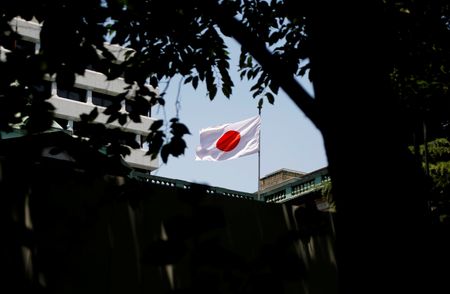 1
1 1
1

TOKYO (Reuters) – The Japanese government’s top economic policy panel on Monday held its first round of special sessions that will discuss the medium-to-long term direction of fiscal and monetary policies, including the pros and cons of “Abenomics”.
Japan pursued a reflationary policy led by monetary stimulus under former premier Shinzo Abe which has helped pull the world’s No. 3 economy out of 15 years of deflation.
Financial markets are, however, now more focused on if and when the central bank will pull back on monetary stimulus given sharp rises in inflation.
Eight economists, including an expert on the country’s inflation trends, were invited to the session. It was not clear how many special sessions the Council on Economic and Fiscal Policy (CEFP) has planned.
The sessions do not intend to discuss the Bank of Japan’s exit strategy or draft new policy objectives to review a 2013 written mission statement between the government and the central bank, Cabinet Office officials said.
Monday’s session comes just one day before the BOJ kicks off its first two-day rate-review of 2023.
Financial markets have bet that a weak yen, rising consumer prices and more political pressure from the government will force the central bank to finally drop its ultra-loose policy at or after the end of Kuroda’s 10-year tenure this April.
Prime Minister Fumio Kishida last month announced the plan for the special CEFP sessions, saying they would stimulate discussion on how to achieve a “virtuous cycle” of growth that could be reflected in the government’s annual mid-year policy blueprint.
(Reporting by Tetsushi Kajimoto; Editing by Edwina Gibbs)